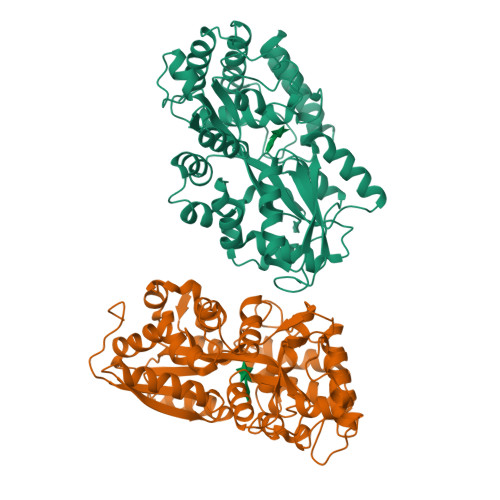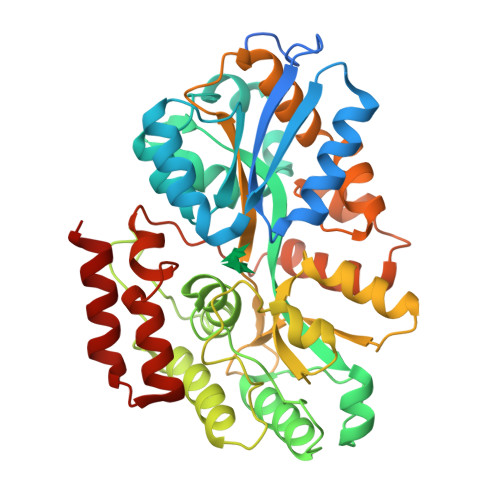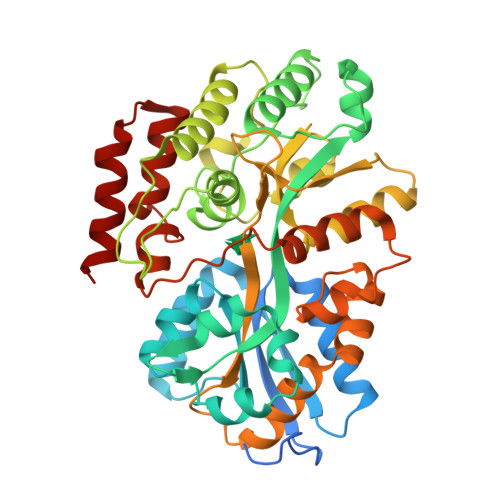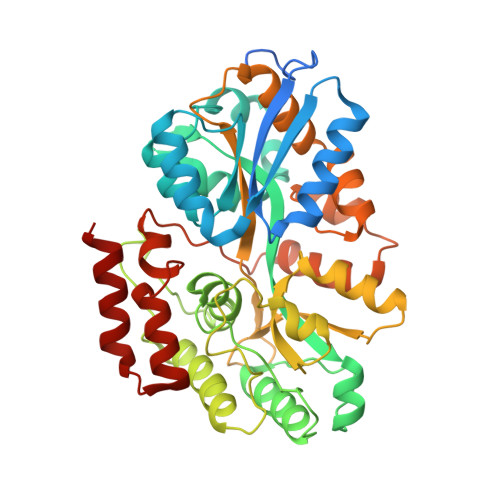Structural analysis of beta-L-arabinobiose-binding protein in the metabolic pathway of hydroxyproline-rich glycoproteins in Bifidobacterium longum.
Miyake, M., Terada, T., Shimokawa, M., Sugimoto, N., Arakawa, T., Shimizu, K., Igarashi, K., Fujita, K., Fushinobu, S.(2020) FEBS J 287: 5114-5129
- PubMed: 32246585
- DOI: https://doi.org/10.1111/febs.15315
- Primary Citation of Related Structures:
6LCE, 6LCF - PubMed Abstract:
Bifidobacterium longum is a symbiotic human gut bacterium that has a degradation system for β-arabinooligosaccharides, which are present in the hydroxyproline-rich glycoproteins of edible plants. Whereas microbial degradation systems for α-linked arabinofuranosyl carbohydrates have been extensively studied, little is understood about the degradation systems targeting β-linked arabinofuranosyl carbohydrates. We functionally and structurally analyzed a substrate-binding protein (SBP) of a putative ABC transporter (BLLJ_0208) in the β-arabinooligosaccharide degradation system. Thermal shift assays and isothermal titration calorimetry revealed that the SBP specifically bound Araf-β1,2-Araf (β-Ara 2 ) with a K d of 0.150 μm, but did not bind L-arabinose or methyl-β-Ara 2 . Therefore, the SBP was termed β-arabinobiose-binding protein (BABP). Crystal structures of BABP complexed with β-Ara 2 were determined at resolutions of up to 1.78 Å. The findings showed that β-Ara 2 was bound to BABP within a short tunnel between two lobes as an α-anomeric form at its reducing end. BABP forms extensive interactions with β-Ara 2 , and its binding mode was unique among SBPs. A molecular dynamics simulation revealed that the closed conformation of substrate-bound BABP is stable, whereas substrate-free form can adopt a fully open and two distinct semi-open states. The importer system specific for β-Ara 2 may contribute to microbial survival in biological niches with limited amounts of digestible carbohydrates. DATABASE: Atomic coordinates and structure factors (codes 6LCE and 6LCF) have been deposited in the Protein Data Bank (http://wwpdb.org/).
Organizational Affiliation:
Department of Biotechnology, The University of Tokyo, Japan.




















